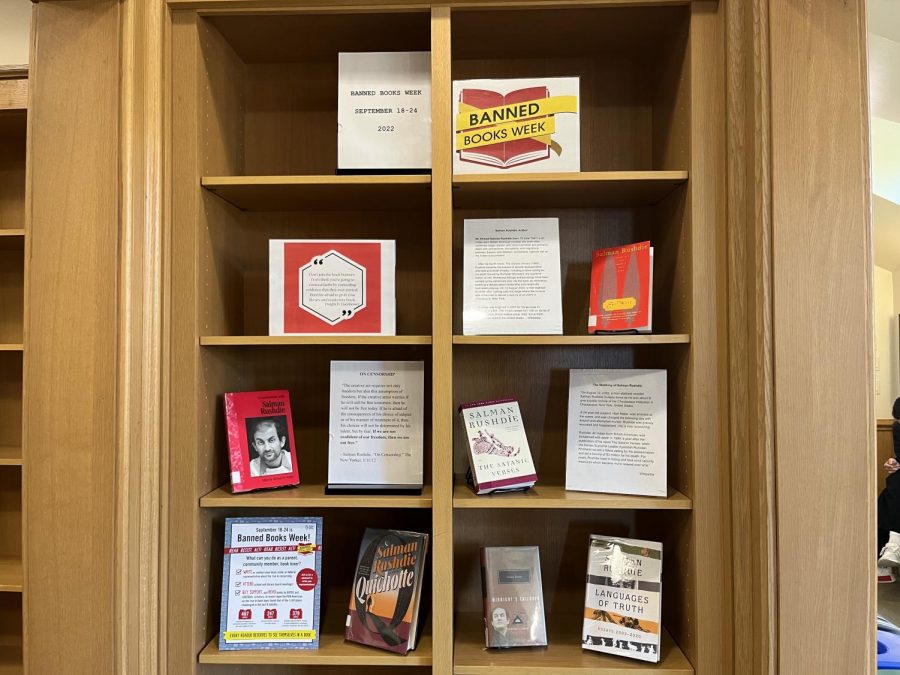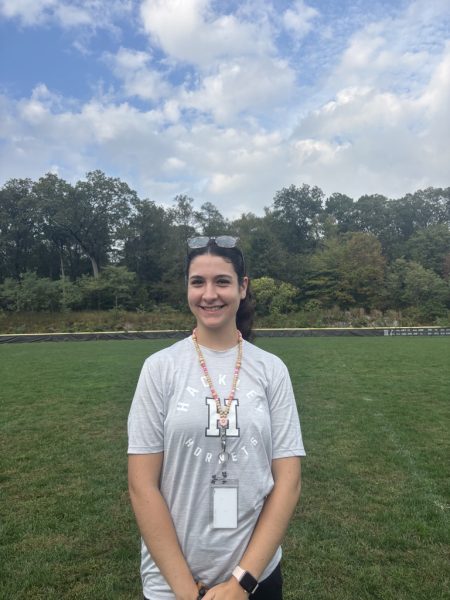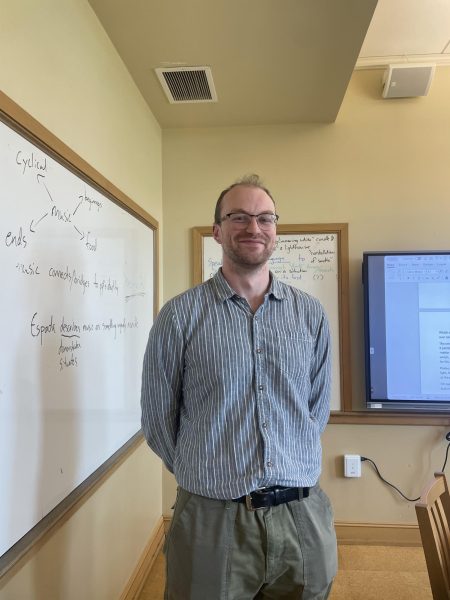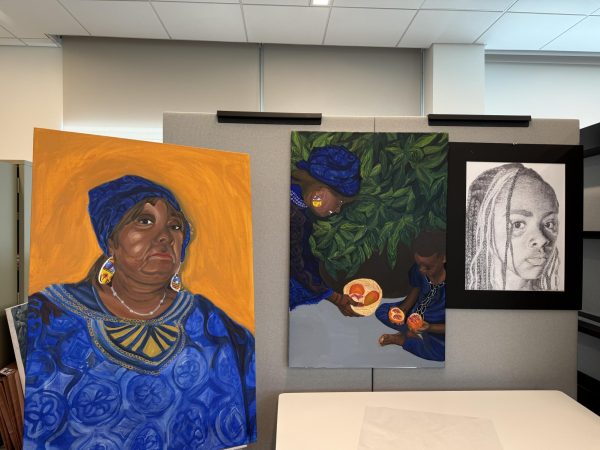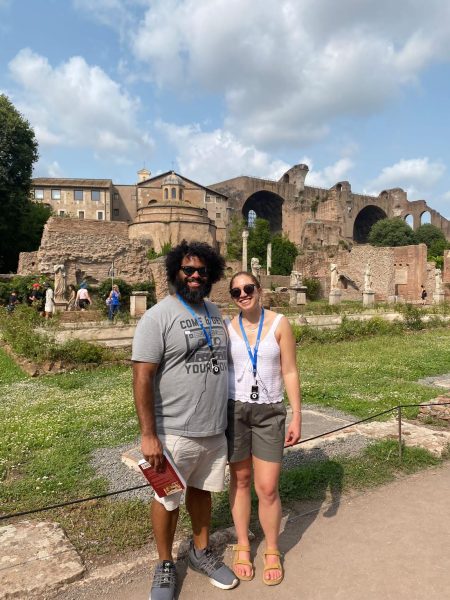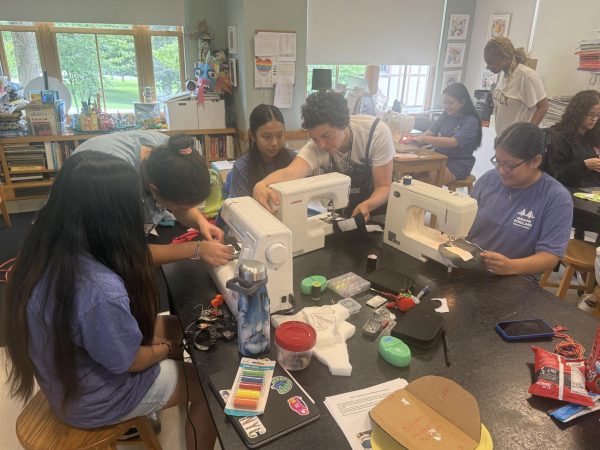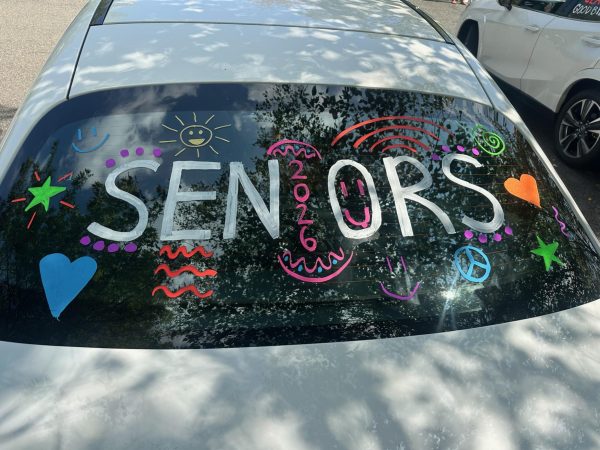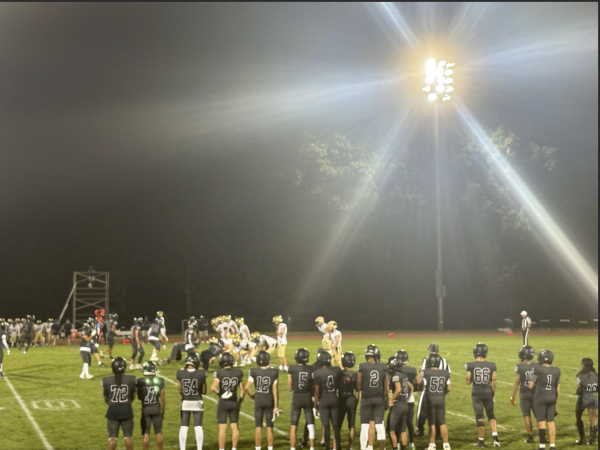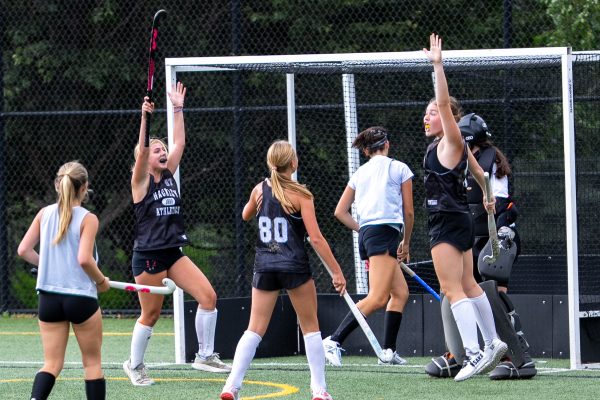Sternberg Library Supports Freedom to Read
Did you know that The Catcher in the Rye, Animal Farm, To Kill a Mockingbird, and Thirteen Reasons Why are all books that have been banned throughout the country?
As the rate of people challenging and banning books rises, so have questions on what schools and librarians do to navigate these challenges. The attempts to ban and challenge books are not new but have become more relevant and popular in recent years. The first question one may ask regarding the banning of books is: What defines a banned or challenged book?
The American Librarian Association defines challenging a book as, “an attempt to remove or restrict materials, based upon the objections of a person or group,” and banning as, “the removal of those materials”.
To further understand varying opinions about banning books and the motives behind these challenges, Ms. Swan, Hackley’s Library department chair and Upper School librarian, answered some questions regarding banned books, motives, and how this is all relevant at Hackley.
“I feel very strongly that books should not be banned, and most librarians feel strongly that books should not be banned because librarians support your freedom to read,” said Ms. Swan.
She continued to say, “Growing up as a kid, your parents make decisions for you, but they can’t make decisions for other people’s kids, each family gets to decide what their values are and what they want their children to read.”
She further explained how with this, a problem usually arises in schools and public libraries because, “people think it is their right to make decisions about what everybody reads, but it’s really up to you as the individual to choose what you want to read.”
There are many disputes between parents and administrators in different schools because of the desire for censorship of certain topics in books. Because those parents do not want their children to read about those topics, they are ultimately blocking other children’s ability to decide what books they can and cannot read.
Ms. Swan went on to say, “A lot of challenges do come from adults who are seeking to limit certain information to kids and teenagers, not all challenges, but a lot of challenges.”
It is important to note that along with people challenging books in their schools, they also challenge books in their public libraries. They use the excuse that their tax dollars are being put towards paying for the library and they do not agree with certain books that are in that library.
Regarding the motives behind the banners and challengers, Ms. Swan explained that “Traditionally the motive for banning books has been to protect. A lot of censors traditionally have been parents who feel strongly that they are protecting their kids.” She said that it is okay for parents to protect their own children, but they “ just can’t tell other people what their kids should read.”
Ms. Swan said that it is also okay to disagree with a topic or theme in a book and to decide for yourself not to read it, but you can not make that decision for others. She continued to say that, “because our country is so politically divided, people are banning books for personal political reasons,” she then gave an example and said, “suddenly community groups of parents are showing up at school board meetings and challenging certain books from the library that are being taught that do not align with their own personal beliefs”. Acknowledging how tricky the situation is, she said, “it’s a thorny thing to unpack.”
One example of the many books that have been challenged, is Harriet the Spy. Many parents have attempted to ban this book or prevent their kids from reading it because it shows Harriet behaving independently and pushing against the authority of her parents. Parents are upset by this because they believe that children should be obedient to their parents and therefore do not want their children to read that book.
Another example of a challenged book, a relevant book to Hackley students, is the previous 9th-grade summer reading, The Hate You Give. This book has been challenged by a wide array of people because they do not like how it openly discusses racism and violence. Regarding this book being challenged because of the topics in it, Ms. Swan said, “of course, kids should read about it, it’s real life, it’s important to know, and it’s important to form your own opinion. Angie Thomas [the author of The Hate You Give] is trying to say important things about racism, community, family, and the importance of coming together to save a neighborhood and to save a group of people”
Regarding the question of whether or not schools should ban certain books from the curriculums, Ms. Swan said, “ No, absolutely not. A school hires teachers for a reason because teachers and librarians go through a rigorous education process; many of your teachers here have master’s degrees; all of your librarians have an additional master’s degree because we are being trained in how to teach and work with teachers and how to evaluate literature for you, and so when a teacher chooses a book to be in their curriculum, they have done research on it and they know the book has themes, messages, or characters they want to explore with you because they have meaning and they will create empathy.”
Regarding the opinion on if authors should have limitations on what they can and can not write about, Ms. Swan said, “why should we limit authors, if you don’t want to read it you don’t have to read it. The author can write whatever the author wants, if that is something that you don’t agree with or that makes you uncomfortable, then you shouldn’t read it.”
She continued to explain that just because you do not agree with an author’s opinion, that does not mean the author should not write about it at all. She then explained how reading is subjective and gave an example of how one person may hate a book that another person loves, but that does not mean that the book should not exist at all.
When discussing her opinion on reading banned books and if they serve importance, she said, “I believe in reading banned books because I want to form my own opinion, and I want kids and teenagers to be able to form their own opinions. When a book is banned it means someone else is trying to impose their opinion on you, they didn’t like it so they don’t think that you would like it either.”
Ms. Swan also talked about why people impose these opinions on others and she explained how adults often think that there are dangerous ideas that kids should not be exposed to.
“My personal belief and a lot of professional librarians that I know believe that there are no such things as dangerous ideas, they’re just ideas, you should read about them and have knowledge about them so that you can decide for yourself, there is nothing dangerous about discussing an idea,” said Ms. Swan.
She gave an example of how often people look at the horrors of World War II and say that kids should not read about it. But she believes that it is important to read about these important historical events to learn about them and better understand the conditions during that time.
When conversing about a person forming their own values from exposure to certain texts and historical events, Ms. Swan said, “there is no way for you to decide your own core values and what you think is right if you are not exposed to a bunch of ideas that you can discuss openly without fear of someone telling you you are not allowed to talk about that or you are not allowed to read about that.”
Ms. Swan also talked about how she has read many banned books and one of her favorite books, The Outsiders, is a banned book.
Ms. Swan has tools and strategies to navigate these questions and she described the library selection process and the policies.
“All libraries have a policy that’s called a selection policy. Hackley has one, and that policy can be read on the Hackley library website, and it explains to the whole community how we choose books,” Ms. Swan said.
She further explained how the librarians are subscribed to professional publications where they read book reviews written by other professional librarians who specialize in certain genres, and the Hackley librarians read these reviews to decide what to add to their collection. She also explained how Hackley’s library may look different than a public library because of the different demographic it is serving with certain factors, the main one being age range.
Although she believes in children having the freedom to read what they want, Ms. Swan also believes in developmental appropriateness. For example, she would not recommend letting a lower schooler read The Hate You Give, just like she would not give an upper schooler Amelia Bedelia.

